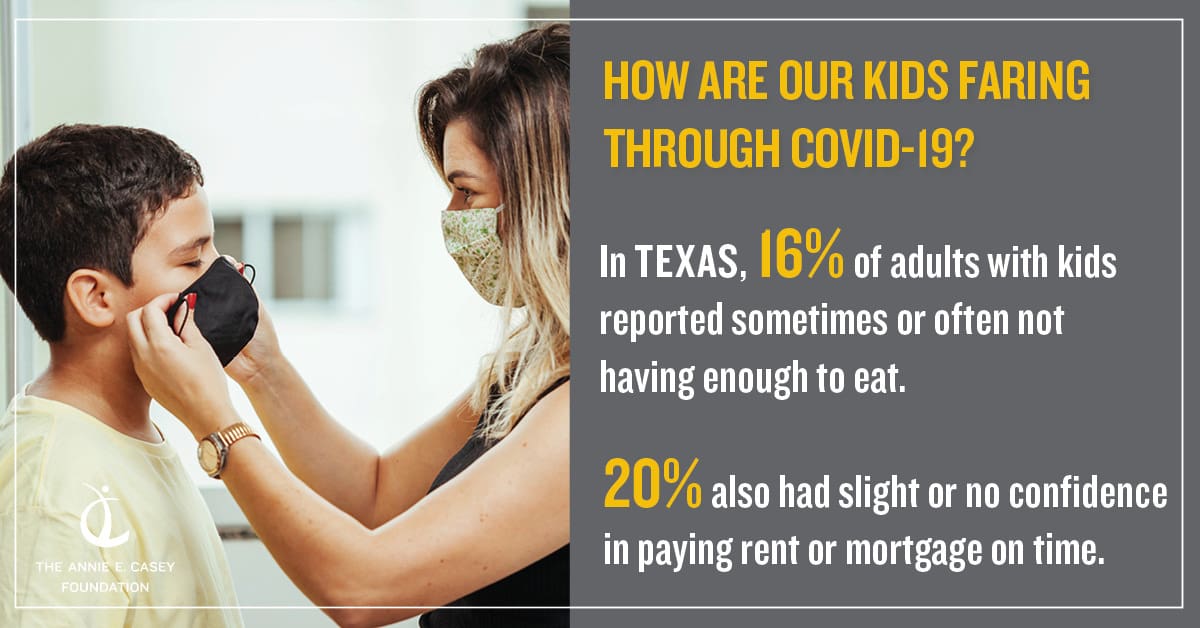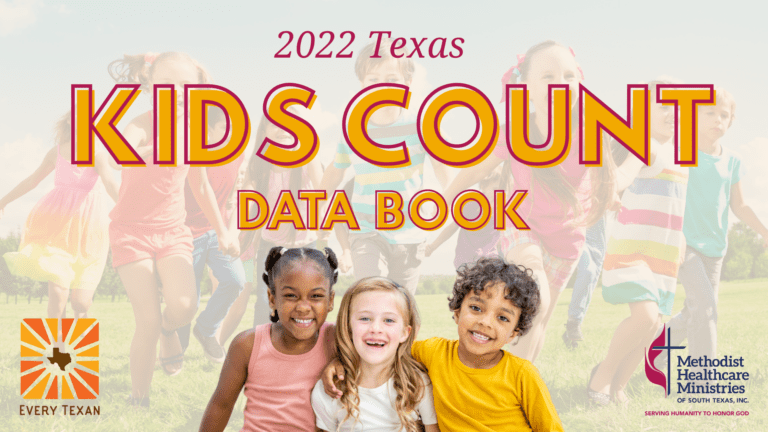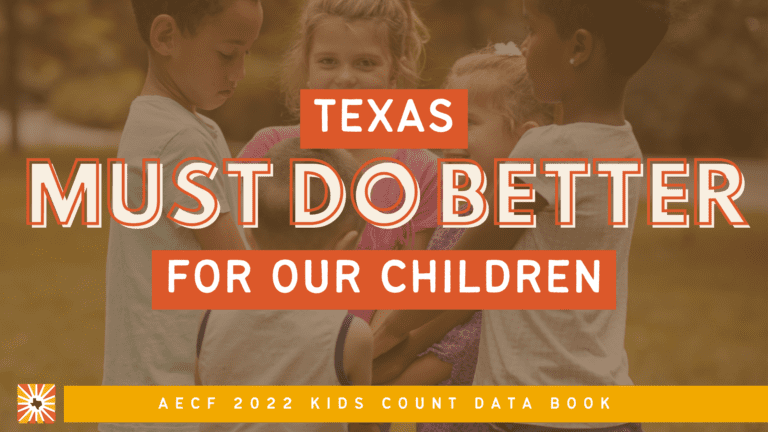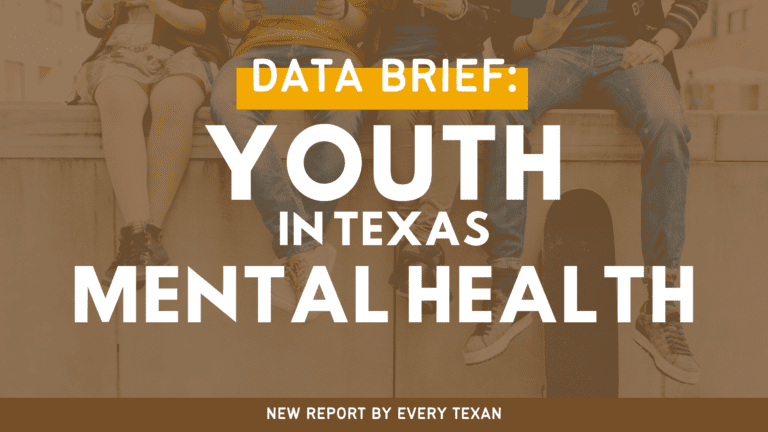
Kids Count
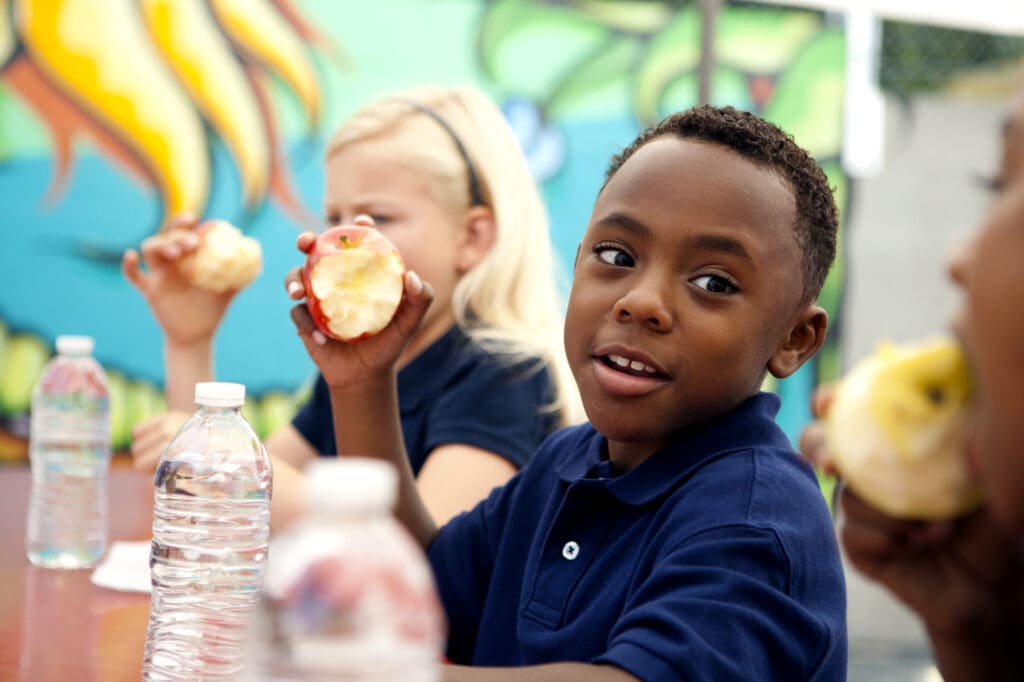
New Texas KIDS COUNT Report
All children deserve the opportunity for a healthy life. In Texas, not all children have the health insurance, food security, and economic security needed for a healthy childhood, due to disparities rooted in systemic racism. Public policy can improve health equity for all Texas children. Policymakers should make practical changes this Legislative Session to ensure all Texas children have the opportunity to thrive.
Over 400,000 uninsured Texas children are eligible for Medicaid or CHIP.
Source: Every Texan analysis of US Census American Community Survey 2019 uninsured estimates, and Migration Policy Institute estimates of Texas Unauthorized immigrant population.
When Texas children are safe, healthy, and educated, Texas thrives. Ensuring that kids do well today ensures that we all do well tomorrow. From 2000 to 2010, Texas accounted for half of the U.S. child population growth, which means when Texas kids do better, the U.S. does better.
Kids Count is a national and state-by-state effort to track the status of children in the U.S. funded by the Annie E. Casey Foundation. Every Texan is the home of the Texas Kids Count Project.
Kids Count
Pandemic Pain Points and the Urgent Need to Respond
This KIDS COUNT policy report examines how households with children are faring during the pandemic. Its findings are primarily based on surveys conducted by the U.S. Census Bureau.
The COVID-19 pandemic has caused widespread economic damage and isolated families in unprecedented ways. Parents have had to juggle both educating and caring for their children and millions of Americans have lost not just their jobs, but their sense stability, source of income and health care.
Background
The KIDS COUNT Data Center shows how kids are faring on over 70 different measures of child well-being. You can observe changes over time, create maps and graphs, compare your location to others, and obtain data for grant proposals from trusted data sources. Indicators include:
- Economic well-being
- Education
- Health & Nutrition
- Demographics by age, gender, race and ethnicity
- And more!
